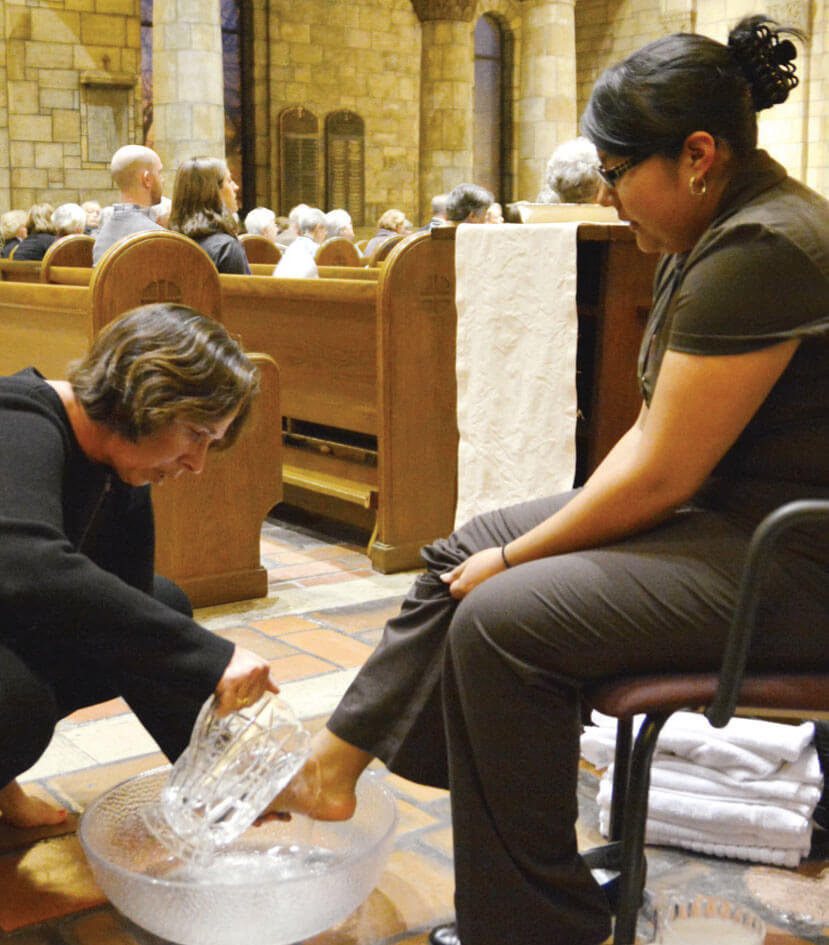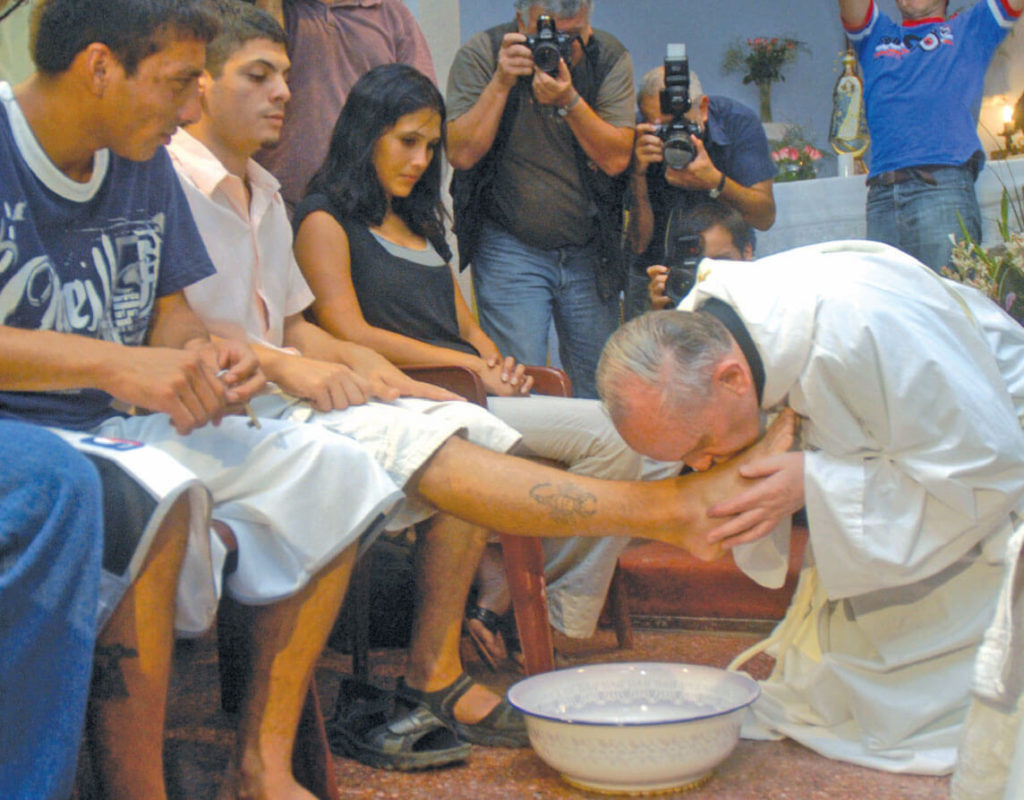
Last Sunday’s gospel from John 10 climaxes in Jesus’ proclamation, “The Father and I are one.” In John’s gospel Jesus is not only the teacher from Galilee but also the pre-existent Word. This high Christology causes conflict between Jews of John’s community and Jews who follow Moses.
John’s gospel inseparably ties its exalted view of Jesus’ identity to the humble reality of Jesus’ crucifixion and death. In John 13, Jesus possesses the omniscience of the Word. He knows that his hour has come “to pass from this world to the Father.”
The gospel writer observes, “He had loved his own in this world and would show his love for them to the end” (13.1). Jesus’ passage to the Father lasts more than a literal hour. It includes the last supper, his passion, death, and resurrection — his glorification, God’s glorification in him.
In John’s gospel Jesus does not institute the eucharist at the last supper as he does in the synoptic gospels. Instead Jesus washes and dries his disciples’ feet. In John, footwashing rather than blessing and sharing bread and wine becomes the symbolic action that anticipates and interprets the meaning of Jesus’ death on the cross for his disciples. Jesus humbles himself and performs a simple and personal act of service for his friends.
In washing his friends’ feet Jesus gives them a model. “As I have done,” Jesus says,” so you must do.” In the community that gives us John’s gospel, the way to imitate Jesus’ ultimate service and love — his humiliating death on the cross — is to serve one another. Perhaps Christians in this community need Jesus’ example so they don’t give some in the community more status than others.
Jesus’ command to wash one another’s feet parallels his command to love one another — the passage that forms Sunday’s gospel. To love one another as Jesus does is to love to the end, all the way, with one’s whole life unto death. Discipleship in John’s community is not about status but about footwashing and service.
- How do people know you are a follower of Jesus?
- What is a personal commandment you keep? How is it like Jesus’ new commandment?
- Compare footwashing with breaking bread and sharing a cup of wine as the symbolic actions through which the community remembers Jesus.
- Who models footwashing in your neighborhood, job, or ministry?

After washing his disciples’ feet, Jesus prepares them for his coming death in a farewell that lasts for four chapters. “I am with you only a little while longer,” he says. He anticipates for his disciples and for us not only his absence but also life in the Spirit in our continuing relationship with him. The Church chooses passages from this farewell as its gospels for the Sundays after Easter each year.
This Sunday Jesus speaks knowing he comes from God and will return to God but also knowing one friend will betray him and one deny him. The gospel deliberately places Jesus’ command to love one another as he has loved us between his prophecy that Judas will betray him (13.21-30) and his prophecy Peter will deny him (13.36-38).
Judas changes allegiance at the last supper. Officials’ growing opposition to Jesus calls the question on this night. Jesus anticipates, “One of you will betray me.” His words unsettle Peter, who nudges the beloved disciple to ask who. “The one to whom I hand a morsel,” Jesus says. It is Judas, who then leaves this intimate meal of belonging among disciples.
At this point Jesus teaches his new commandment. It turns on the little word as, the likeness to his own love that Jesus expects of his disciples. “As I have loved you, so you must love one another.” Love for each other is how others will recognize us as Jesus’ followers. Our love for each other will reveal the one we follow.
- When have you experienced a parish community that makes clear they are Jesus’ disciples?
- How does Judas’s betrayal affect you?
In the fourth gospel Jesus is the revealer. In his footwashing and in laying down his life for his friends, Jesus reveals his love for them and for us. Peter insists he is ready to reciprocate and give his life for his friend, but Jesus knows better. Jesus’ simple command to love one another takes a lifetime to transform us as we live it out.
A thousand years ago in feudal times St. Anselm understood Jesus’ death as making satisfaction for our sins which offended God. Drawing on his own time, Anselm saw God as a feudal lord whose honor must be restored. Today this theology makes God an abusive father. The word sacrifice suggests unwilling victims. Self-sacrifice can stunt becoming a full self-giving person.
Love is a free act. Love grows through a succession of free responses that serve our marriages, friendships, and commitments. Understanding Jesus as wholeheartedly self-giving emphasizes his free gift of himself.
Love is a verb that can welcome immigrants, hold a benefit for a sick neighbor, serve meals at shelters and experience others’ burdens. Love puts faith into action.
- How do you see the Christian community — more like a flock that belongs to a shepherd who knows and cares for you or more like a company of Jesus’ friends who love one another?
